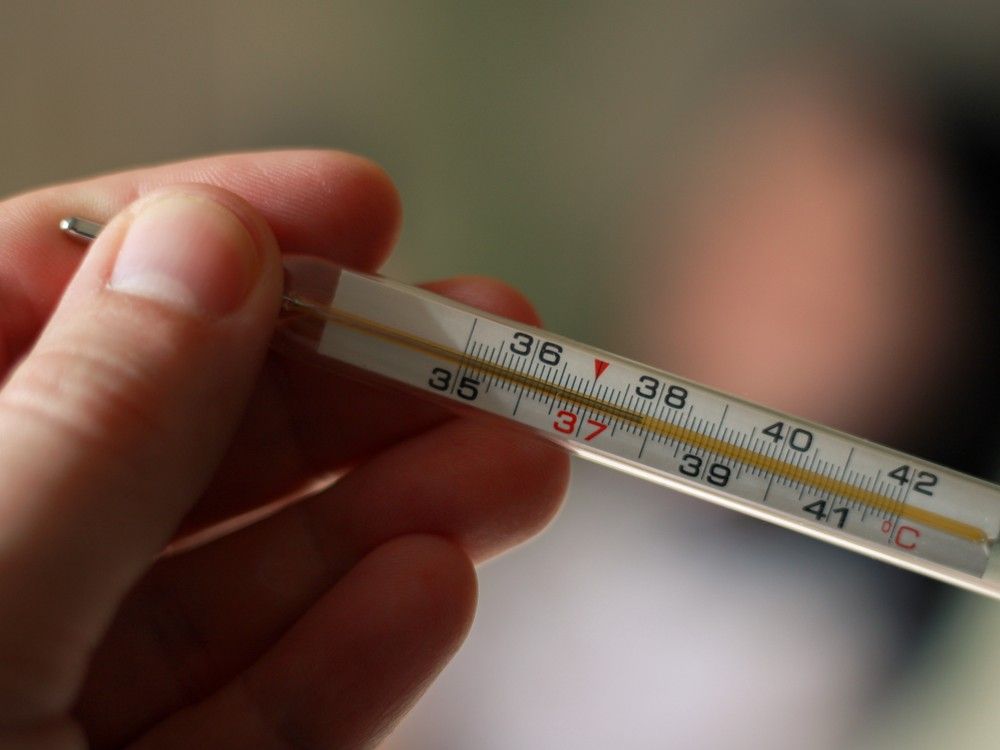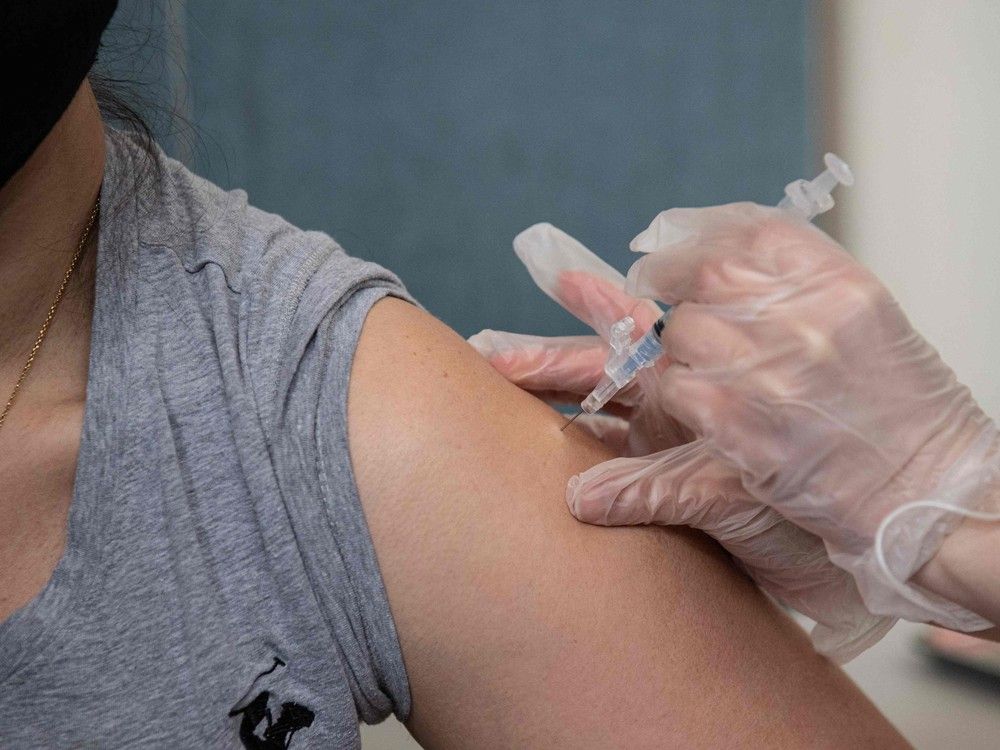
It’s that time of year again when sniffles and a sore throat could mean a cold or something more serious like a respiratory illness such as RSV or COVID-19.
The B.C. Centre for Disease Control has resumed weekly updates for the 2025-26 respiratory season. According to the latest COVID-19 data, released by the B.C. CDC on Thursday, cases of COVID-19 are rising across Canada but remain at moderate levels in B.C.
Severe cases of the illness remain low.
Here’s some of the latest information. Check back for more updates as the province releases more details in the coming weeks.
What’s the current COVID situation in B.C.?
The B.C. CDC data show COVID-19 is at a moderate level in B.C. while wastewater shows moderate to high levels of the SARS-CoV-2 virus.
Overall in Canada, COVID-19 activity is increasing, according to the agency’s latest update, while other respiratory illnesses such as influenza and RSV are low.
Dr. Jennifer Vines, medical director of public health response at the B.C. CDC, said severe outcomes from COVID-19 infection, such as hospitalization and death, remain low in B.C., similar to other parts of Canada.
Visits to the emergency department and primary care for respiratory illness are slowly increasing, but trends are comparable to the same period last year.
What is the newest variant and does the last vaccine cover it?
The most common variants in B.C., according to B.C. CDC data, are NB.1.8.1, XFG.2, and XFG.3. The NB variant, also called Nimbus, became known for causing a very painful sore throat.
The XFG variant, also called Stratus, is the latest to spread in Canada. Experts say these variants do not pose a bigger threat than previous variants but illness varies from person to person, and depends on different factors like age and health. The SARS-CoV-2 virus mutates often, and new strains of the virus are usually more infectious.

What vaccinations are available?
Influenza and COVID-19 vaccines will be available at no cost to residents of B.C. again this season, said Vines.
Notifications to book vaccine appointments will commence on Tuesday. Immunization appointments will be available starting Oct. 14.
Immunizations will start with those who are at higher risk for infection or serious illness including health care workers, people residing in long-term care, and people who are immune compromised.
In addition, B.C. recently updated its pneumococcal immunization program to include PCV20 (Prevnar-20) for children and adults. This vaccine provides broader and more effective protection against Streptococcus pneumoniae, bacteria that can cause severe pneumococcal disease such as pneumonia, meningitis, and bloodstream infections.
The vaccine is offered to infants as part of the routine immunization schedule, and is available at no cost to adults with certain chronic medical conditions, and healthy adults over 65 years of age, added Vines.
This season, B.C. has expanded its infant RSV immunoprophylaxis program.
Through this program, nirsevimab (a monoclonal antibody) will be offered to infants at high-risk from severe RSV disease. These include infants born prematurely, those with certain chronic medical conditions, or who live in remote communities.
A vaccine given between 32 and 36 weeks of pregnancy can also protect infants from severe RSV. This vaccine is free for people with First Nation Health Benefits through the First Nations Health Authority and will also be available for purchase from pharmacies for other British Columbians.
There is also an RSV vaccine for older adults. It is recommended for everyone 75 years of age and older, for people 60 years of age and older residing in long-term care homes, and for some adults aged 50 to 74 at higher risk of severe RSV in discussion with a health care provider. This vaccine is available for purchase from pharmacies.
How bad will it be this fall or winter?
Vines said respiratory seasons are difficult to predict.
“The severity of a given season depends on several factors, for example, which variants of flu and COVID-19 circulate, how much underlying population immunity exists, how many people get the recommended vaccines, and how well matched the vaccines are to the circulating strains,” she said.
Should I get a COVID vaccine along with my annual flu shot?
Everyone in B.C. aged six months and older is encouraged to get a seasonal influenza vaccine.
Vines said COVID-19 vaccines are recommended for people at higher risk of infection and serious illness, including adults over 65, people living in long-term care homes and assisted-living facilities, Indigenous people six months and older, and those who have certain medical conditions, are pregnant or immunosuppressed.
Health care workers and those who provide essential community services are urged to get the new COVID-19 vaccine.
While COVID-19 vaccines are recommended for the above populations, it is available free of charge for everyone in B.C. aged six months and older.
People can book their influenza and COVID-19 vaccines appointments at the same time.
Where can I book my COVID shot?
If you are registered in B.C.’s Get Vaccinated system, you will receive a notification via email when it is time to book your appointment. You can also check with your health care provider.
You can book appointments at a pharmacy or public health unit for influenza and COVID-19 immunizations using the booking link you will receive if you are registered with the Get Vaccinated system. You can also call the call centre at 1-833-838-2323.
Many pharmacies will be offering walk-in appointments as well. The vaccines may also be available in some primary care offices.

What are some symptoms I should watch for?
According to Health Canada, symptoms of COVID-19 can vary. They can also depend on the variant, how old the patient is and whether they have any underlying health issues. Here is the federal agency’s list of the most common symptoms:
• sore throat
• runny nose
• sneezing
• new or worsening cough
• shortness of breath or difficulty breathing
• temperature equal to or more than 38 C
• feeling feverish
• chills
• fatigue or weakness
• muscle or body aches
• new loss of smell or taste
• headache
• abdominal pain, diarrhea and vomiting
• feeling very unwell
What should I do if I have symptoms?
Health officials say if you don’t feel well or if you have any symptoms, even if mild, assume you may have COVID-19.
They advise isolating at home and away from others, and to take a home test if possible.
Call 911 if you have trouble breathing or severe shortness of breath, persistent pressure or pain in the chest, new onset of confusion, difficulty waking up or staying awake and pale, grey or blue-coloured skin, lips or nail beds.
Adults and children with mild COVID-19 symptoms can stay at home while recovering. You don’t need to go to the hospital if symptoms are mild.
In B.C., if you don’t have these symptoms that require immediate medical assistance but want advice on what you should do you can call 811.